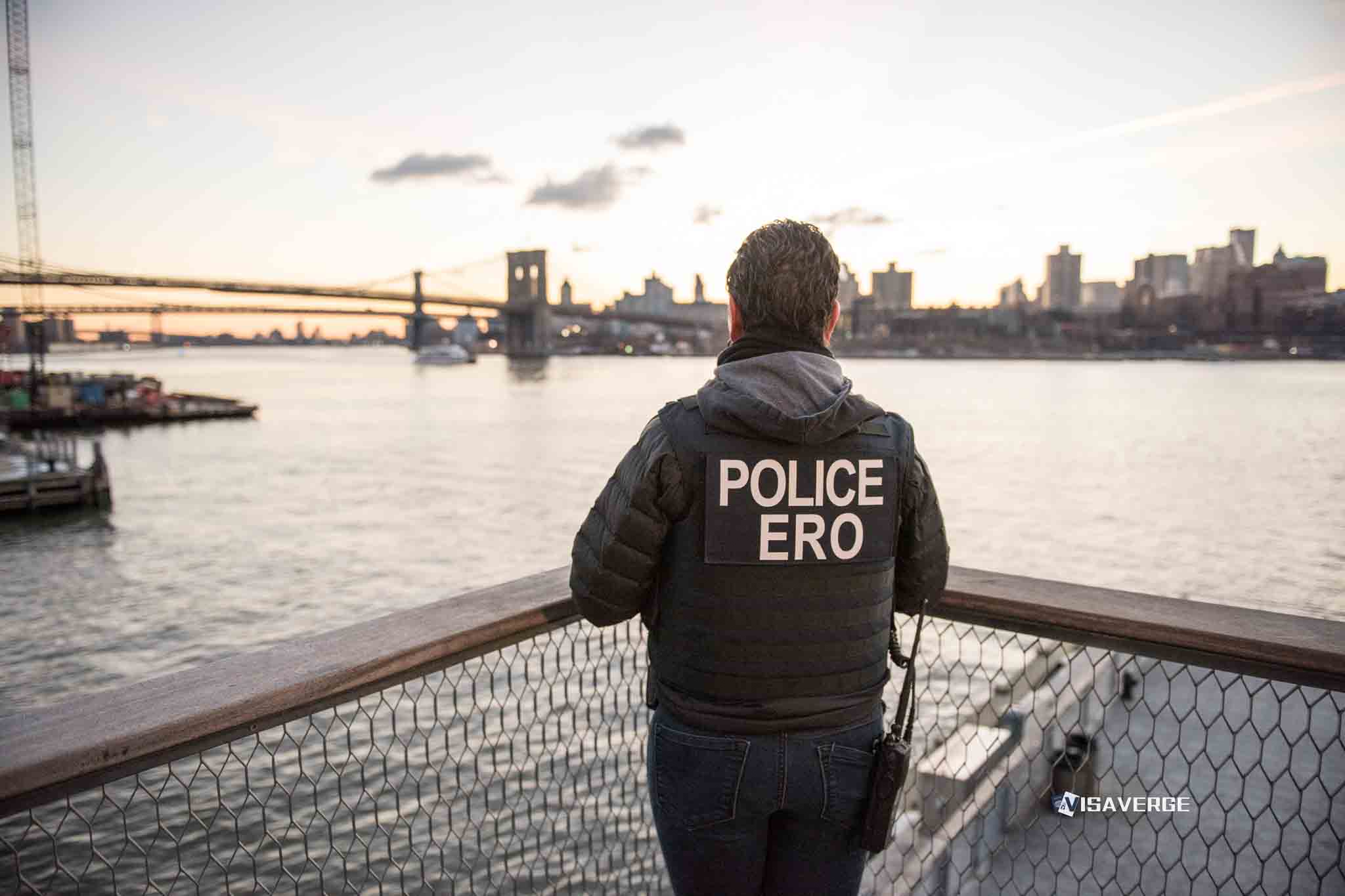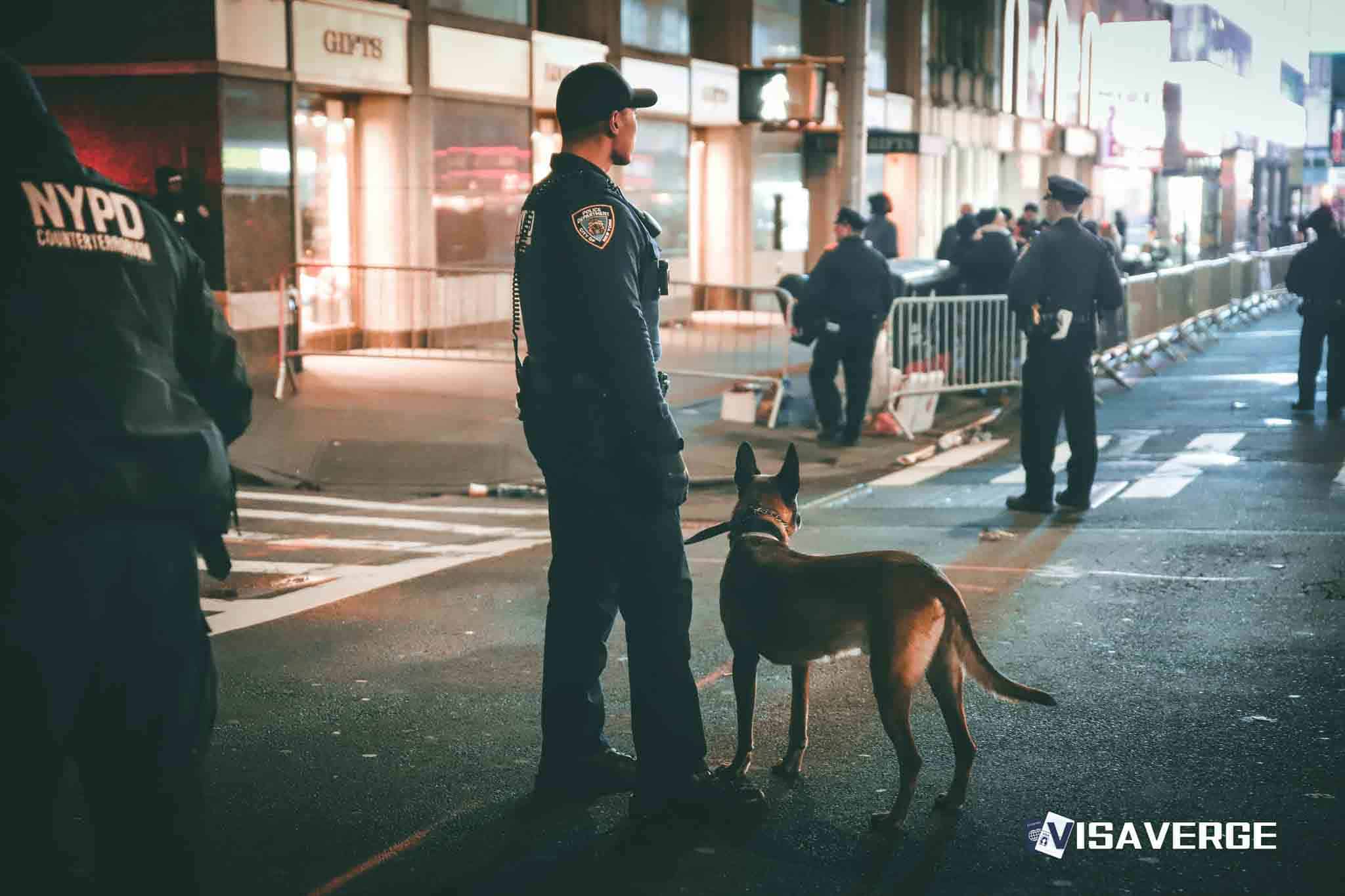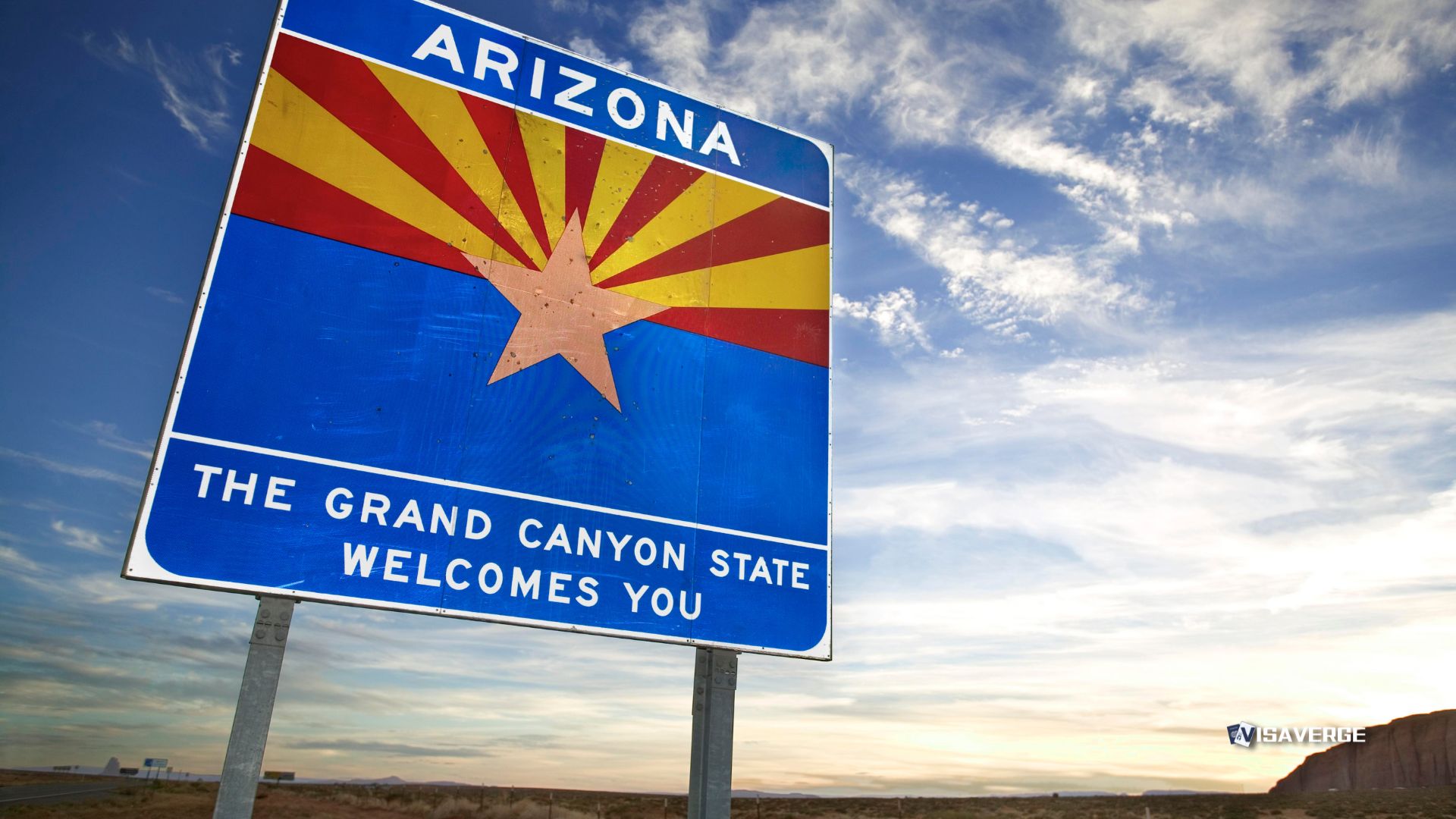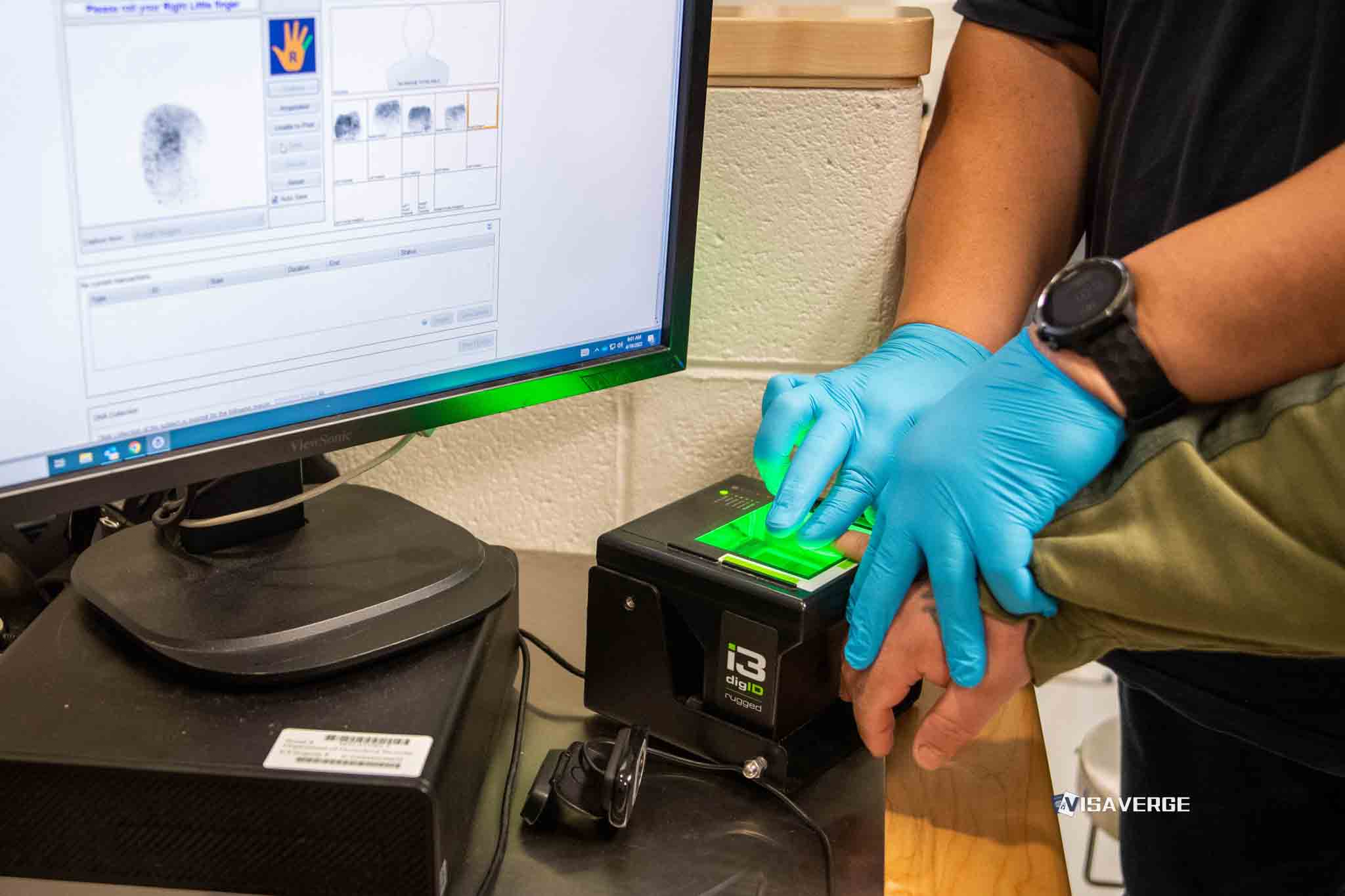Key Takeaways
• On April 11, 2025, Judge Comans ruled Mahmoud Khalil deportable despite lack of criminal evidence.
• LaSalle Immigration Court operates inside a privately run ICE center, limiting court access and security.
• Private operators control visitor access, influencing immigrant legal support in Louisiana ICE detention centers.
A recent case at the LaSalle Immigration Court in Jena, Louisiana has brought national attention to how immigration judges work inside ICE detention centers and the influence private operators have over court procedures. The case of Mahmoud Khalil, a Palestinian activist and Columbia University student, highlights the complex relationship between immigration courts, ICE Detention Centers, and the private companies that run these facilities. This story raises important questions about due process, legal rights, and the broader impact of immigration enforcement policies in Louisiana and across the United States 🇺🇸.
Who, What, When, Where, and Why: The Mahmoud Khalil Case

On April 11, 2025, Immigration Judge Jamee Comans at the LaSalle Immigration Court ruled that Mahmoud Khalil could be removed from the United States 🇺🇸 under immigration law. Khalil, a green card holder and student at Columbia University, was detained by federal immigration agents in New York and transferred to the Central Louisiana ICE Processing Center in Jena, Louisiana. His case has become a focal point for debates about free speech, due process, and the power of ICE Detention Centers.
Khalil’s legal team argued that there was little evidence to support his deportation. The main evidence presented by the government was a letter from Secretary of State Marco Rubio, which stated that Khalil had not committed a crime but was being targeted for his speech related to pro-Palestinian protests. Despite this, Judge Comans said the Department of Homeland Security (DHS) had met its burden to remove Khalil, explaining, “this court is obligated to apply the laws as written by Congress.”
After the ruling, Khalil remained detained at the Central Louisiana ICE Processing Center while his lawyers prepared to appeal. In a statement to the court, Khalil said, “I would like to quote what you said last time that there’s nothing that’s more important to this court than due process rights and fundamental fairness. Clearly what we witnessed today, neither of these principles were present today or in this whole process. This is exactly why the Trump administration has sent me to this court, 1,000 miles away from my family.”
How Louisiana Immigration Courts Operate Inside ICE Detention Centers
The LaSalle Immigration Court is located inside the Central Louisiana ICE Processing Center, a secure facility managed by GEO Group, a private contractor. This setup creates a unique environment for immigration court proceedings. The court is within a secure perimeter, and all visitors must pass through several security checkpoints before entering.
Access to the LaSalle Immigration Court is tightly controlled:
- Visitors must pass through locked gates and security screening.
- Cell phones are not allowed unless GEO Facility Management gives special approval.
- All visitors are screened with metal detectors and bag checks.
- Shoes may need to be removed during screening.
- Food and drinks are not allowed unless the immigration judge gives permission.
The court’s operating hours are Monday through Friday, 8 a.m. to 4 p.m., except on federal holidays. Attorneys and accredited representatives can use electronic devices for court-related work, but cameras and recording devices are strictly banned in courtrooms.
These strict rules are not set by the immigration judges themselves but are enforced by the private company running the ICE Detention Center. This means that the judge often defers to the facility operator on matters of court access and security. According to analysis from VisaVerge.com, this arrangement can affect how easily lawyers, families, and advocates can support detained immigrants during their court cases.
The Legal Framework: Who Controls Access to Immigration Courts?
Access to immigration detention centers, including those in Louisiana, is governed by the Performance-Based National Detention Standards (PBNDS). These standards apply to all ICE Detention Centers, whether run by ICE directly or by private contractors like GEO Group.
Key points about the legal framework:
- ICE oversees the detention system through contracts called Intergovernmental Services Agreements (IGSAs).
- Detention centers can be “dedicated” (only for immigrants) or “non-dedicated” (holding immigrants and people facing criminal charges).
- Facility operators have broad power to approve or deny access for lawyers, advocates, and visitors.
- Legal arguments are important, but building good relationships with facility staff is often necessary to gain access.
Groups like the Acacia Center for Justice, Robert F. Kennedy Human Rights, and the ACLU of Louisiana have published guides to help lawyers and organizations understand how to access ICE Detention Centers. These guides stress that, while the law provides some rights, the day-to-day reality depends heavily on the decisions of facility operators.
For more information about ICE detention standards, you can visit the official ICE Detention Standards page.
ICE Detention and Removal: How the Process Works
When someone is detained by ICE, their case is managed through a system called the Deportable Alien Control System (DACS). This system tracks each case from start to finish. Before a final decision is made in removal proceedings, detainees can ask for a custody or bond re-determination hearing before an immigration judge.
Important details about the process:
- Initial requests for bond or custody hearings can be made orally or in writing.
- If a detainee wants to make another request, it must be in writing and show that something important has changed in their situation.
- Both ICE and the detainee can appeal the judge’s custody decision to the Board of Immigration Appeals (BIA).
- Most cases begin with arrests by other agencies, such as Border Patrol or ICE Investigations.
The rules for these procedures are outlined in the ICE Detention and Removal Operations Field Policy Manual. This manual explains how cases are started, how detainees are tracked, and what rights they have during the process.
The Role of Private Operators in Louisiana ICE Detention Centers
In Louisiana, many ICE Detention Centers are run by private companies under contract with the federal government. GEO Group, which operates the Central Louisiana ICE Processing Center, is one of the largest private prison companies in the United States 🇺🇸. These companies are responsible for security, daily operations, and enforcing facility rules.
Private operators have significant influence over:
- Who can enter the facility and under what conditions
- What items visitors can bring
- How and when court hearings are scheduled
- What support services are available to detainees
Because immigration courts like the one in LaSalle are located inside these private facilities, judges often defer to the operator’s rules on access and security. This can make it harder for lawyers, families, and advocates to support detained immigrants, especially in urgent or high-profile cases.
The Bigger Picture: Immigration Enforcement Under President Trump
The Khalil case is not happening in isolation. Under President Trump, immigration enforcement has become more aggressive, with a focus on detaining and removing people who are seen as threats or who have spoken out on controversial issues. Data from TRAC Immigration shows an increase in the use of ICE detainers, which are requests for local law enforcement to hand over individuals to ICE.
In recent weeks, the Trump administration has targeted other international students and academics who have taken part in pro-Palestinian activities at American universities. These cases are still being decided in court, but they show a pattern of using immigration law to address political speech and activism.
Legal Representation and Advocacy: Fighting for Due Process
Khalil’s legal team is made up of several organizations, including Dratel & Lewis, the Center for Constitutional Rights, CLEAR, Van Der Hout LLP, Washington Square Legal Services, the New York Civil Liberties Union (NYCLU), the ACLU of New Jersey, and the national ACLU. These groups are working together to challenge Khalil’s detention and removal.
Noor Zafar, a senior staff attorney with the ACLU’s Immigrants’ Rights Project, said, “The fight to bring Mahmoud home is far from over. We will continue undeterred to press for his release after this startling escalation of the Trump administration’s war on dissent. We will fiercely defend his and others’ right to speak freely about Palestine or any other issue without fear of detention and deportation.”
Amy Greer, an associate attorney at Dratel & Lewis, called the case “egregious overreach by the US government,” and warned that “this decision will embolden the Trump administration to target other vulnerable people who are simply speaking out for Palestinian human rights.”
Khalil’s lawyers are also seeking his release in a separate legal case in a federal court in New Jersey.
Implications for Stakeholders: What This Means for Immigrants, Lawyers, and Advocates
The situation in Louisiana’s immigration courts and ICE Detention Centers has wide-reaching effects:
For detained immigrants:
– Access to legal help can be limited by facility rules and distance from family or community support.
– Court hearings may feel rushed or unfair, especially when judges defer to private operators on access and procedure.
– Appeals and legal challenges can take months or even years, with detainees remaining in custody during the process.
For lawyers and advocates:
– Gaining access to clients in ICE Detention Centers can be difficult and time-consuming.
– Building relationships with facility staff is often necessary to ensure regular communication and support.
– Advocacy efforts may be hampered by strict rules on electronic devices, paperwork, and visitation.
For families and communities:
– Loved ones may be held far from home, making visits and support challenging.
– Uncertainty about the outcome of court cases can cause stress and hardship.
– Community groups may need to step in to provide legal, financial, and emotional support.
The Importance of Due Process and Fairness in Immigration Courts
The Khalil case has sparked debate about the role of due process and fairness in immigration courts, especially those located inside ICE Detention Centers. When judges defer to private operators on court rules, it can create barriers to justice and make it harder for immigrants to defend themselves.
Advocates argue that everyone deserves a fair hearing, access to legal help, and the ability to communicate with family and supporters. When these rights are limited by facility rules or distance, the risk of wrongful detention and deportation increases.
What Can Be Done: Practical Steps for Stakeholders
If you or someone you know is facing immigration detention in Louisiana or elsewhere, here are some practical steps to consider:
- Contact a qualified immigration lawyer as soon as possible. Legal representation can make a big difference in the outcome of a case.
- Know your rights. Detainees have the right to request bond hearings and to appeal decisions. For more information, visit the U.S. Department of Justice’s Executive Office for Immigration Review website.
- Build relationships with facility staff. While the law provides some rights, access often depends on cooperation with detention center operators.
- Stay informed about court dates and deadlines. Missing a hearing or filing deadline can have serious consequences.
- Reach out to advocacy organizations. Groups like the ACLU, local legal aid societies, and immigrant rights organizations can provide support and resources.
Conclusion: The Ongoing Debate Over Immigration Courts in ICE Detention Centers
The case of Mahmoud Khalil at the LaSalle Immigration Court in Louisiana shows how immigration judges, ICE Detention Centers, and private operators interact in ways that can affect due process and access to justice. As reported by VisaVerge.com, the growing influence of private facility operators over court procedures raises important questions about fairness, transparency, and the rights of detained immigrants.
With immigration enforcement policies continuing to evolve, the experiences of people like Khalil—and the lawyers and advocates who support them—will shape the future of immigration law and policy in the United States 🇺🇸. For those affected, staying informed, seeking legal help, and working with advocacy groups remain the best ways to protect their rights and pursue fair outcomes in a challenging system.
Learn Today
ICE Detention Center → Facilities where U.S. Immigration and Customs Enforcement holds individuals during immigration proceedings.
Performance-Based National Detention Standards (PBNDS) → Rules governing operations and access in ICE detention centers nationwide.
Intergovernmental Services Agreements (IGSAs) → Contracts between ICE and private/local agencies to manage detention facilities.
Deportable Alien Control System (DACS) → A tracking system used by ICE to monitor detainee cases from arrest to removal.
Board of Immigration Appeals (BIA) → The highest administrative body to review immigration judge decisions.
This Article in a Nutshell
The Mahmoud Khalil case highlights the challenges within ICE detention centers where private companies control court access, complicating fairness and due process for detained immigrants in Louisiana’s LaSalle Immigration Court.
— By VisaVerge.com













